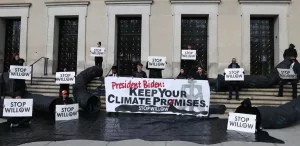On March 2, Vietnam underwent a significant leadership change, as Vo Van Thuong was appointed as the new president by the National Assembly. Thuong took over the presidency following the resignation of his predecessor Nguyen Xuan Phuc in January. Vo Van Thuong resigned along with Pham Binh Minh and Vu Duc Dam, two deputy prime ministers, who were all implicated in corruption cases linked to the country’s COVID-19 pandemic response.
The corruption scandals that rocked the Vietnamese government included allegations of price-fixing and kickbacks related to Covid-19 test kits, as well as the solicitation of bribes for seats on charter flights repatriating Vietnamese nationals during the pandemic. The revelation of these scandals resulted in a wave of arrests. Indeed, 539 officials (including ministers and diplomats) were prosecuted for corruption. Additionally, police investigations into corruption cases increased by 50% compared to 2021.
However, amidst the scandal, Vo Van Thuong emerged as a beacon of hope for the Vietnamese people. His clean record and commitment to transparency helped him earn the public’s trust, leading to his selection as president. Notably, a prominent Vietnamese social media figure praised Thuong for his efforts in sowing the seeds of change in the government and instilling hope for a future where corruption is not tolerated.
Vo Van Thuong’s role in Vietnamese politics
Vo Van Thuong’s political background is deeply rooted in Vietnamese politics. He served as the leader and First Secretary of the Ho Chi Minh Communist Youth Union from 2006 to 2011, a key organization from which the Communist Party of Vietnam (CPV) often draws its future leaders. Subsequently, he held prominent positions such as the Secretary of the Quang Ngai Provincial Party Committee from 2011 to 2014, and the Standing Deputy Secretary of the Ho Chi Minh City Party Committee from 2014 to 2016. Moreover, he served as the Chairman of the CPV Central Commission for Propagation and Education Affairs between 2016 and 2021, a crucial role in the Vietnamese government that oversees the country’s media outlets. He was then promoted to the position of Executive Secretary of the CPV between 2021 and 2023.
What does his election mean for the rest of Thuong’s career?
In Vietnam, the most influential position is held by the party chief, currently General Secretary Nguyen Phu Trong. As Vo Van Thuong assumes the presidency, his ability and competence will be put to the test in the coming year. If he continues to garner support and gain the trust of Trong, there is a possibility that Thuong could succeed him in the next three years or hold both the positions of CPV chief and state president concurrently.
What does this election mean for Xi Jinping?
The relationship between China and Vietnam remains strong and is guided in part by the Vietnamese party chief. In recent Lunar New Year letters exchanged between General Secretary Comrade Xi Jinping and Nguyen Phu Trong, the two leaders emphasized the strategic importance of the two countries’ relationship. Indeed, Xi stated that China and Vietnam share a community with a common destiny. Trong, for his part, expressed his readiness to work with Xi in strengthening the socialist development of both nations and charting a strategic course for the continued growth of their political ties.
The anti-corruption initiatives in both China and Vietnam share a common goal: ensuring that their respective Communist Parties maintain the support of the people and remain central to the country’s political landscape. By doing so, they aim to consolidate the parties’ power and further their development. Maintaining a good relationship with China is essential for Vietnam. Indeed, the country’s manufacturing industry heavily depends on China for raw materials, fuel and equipment.
Vo Van Thuong’s appointment as Vietnam’s new president comes amidst a wave of corruption scandals that have rocked the country’s government. However, his clean record and commitment to transparency have earned him the public’s trust. The next three years will be key in determining his future in Vietnamese politics. His election did not derail the relationship between Vietnam and China, as maintaining a good relationship with China remains crucial for Vietnam’s manufacturing industry.
Featured image by: Vietnam News Agency / AFP







